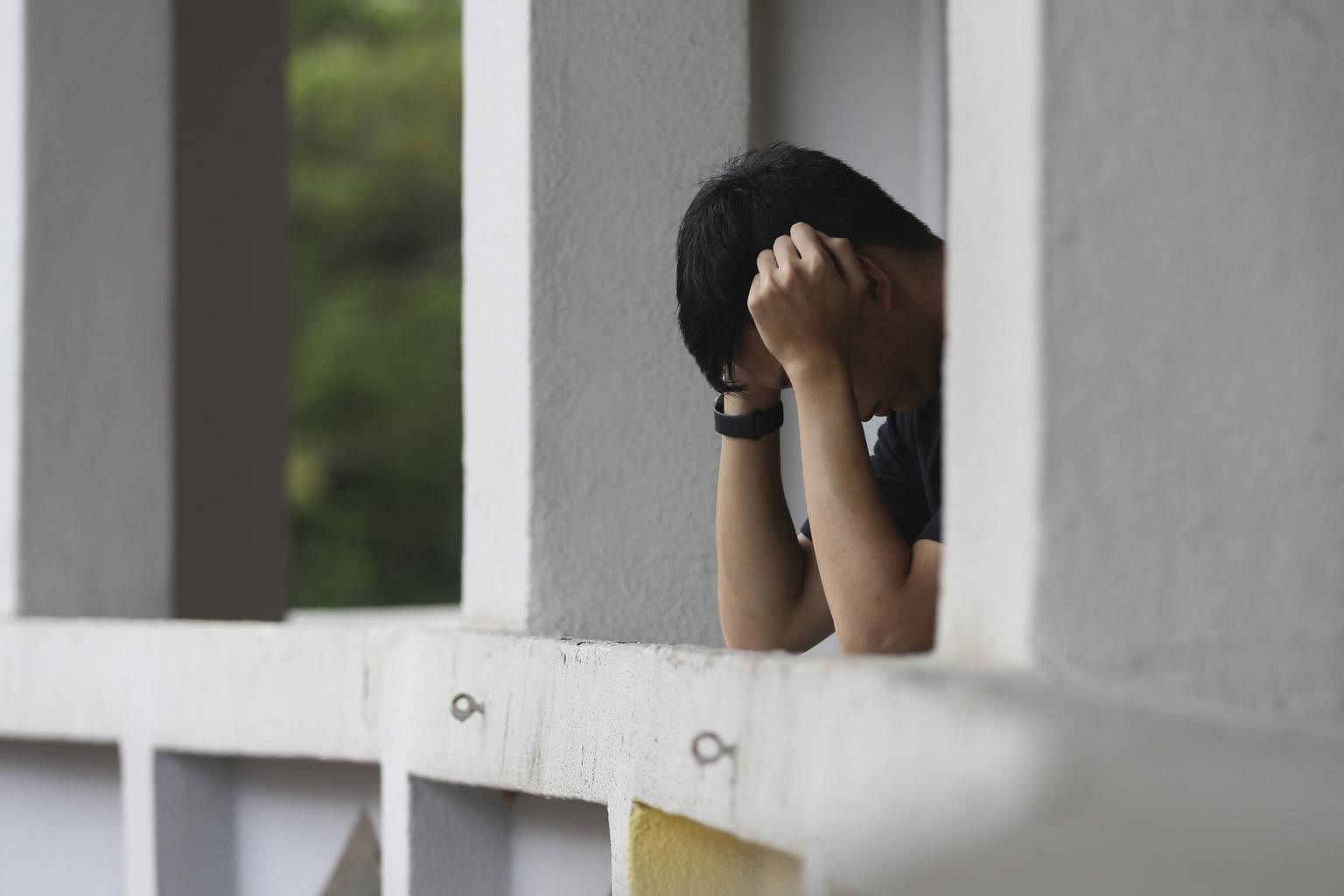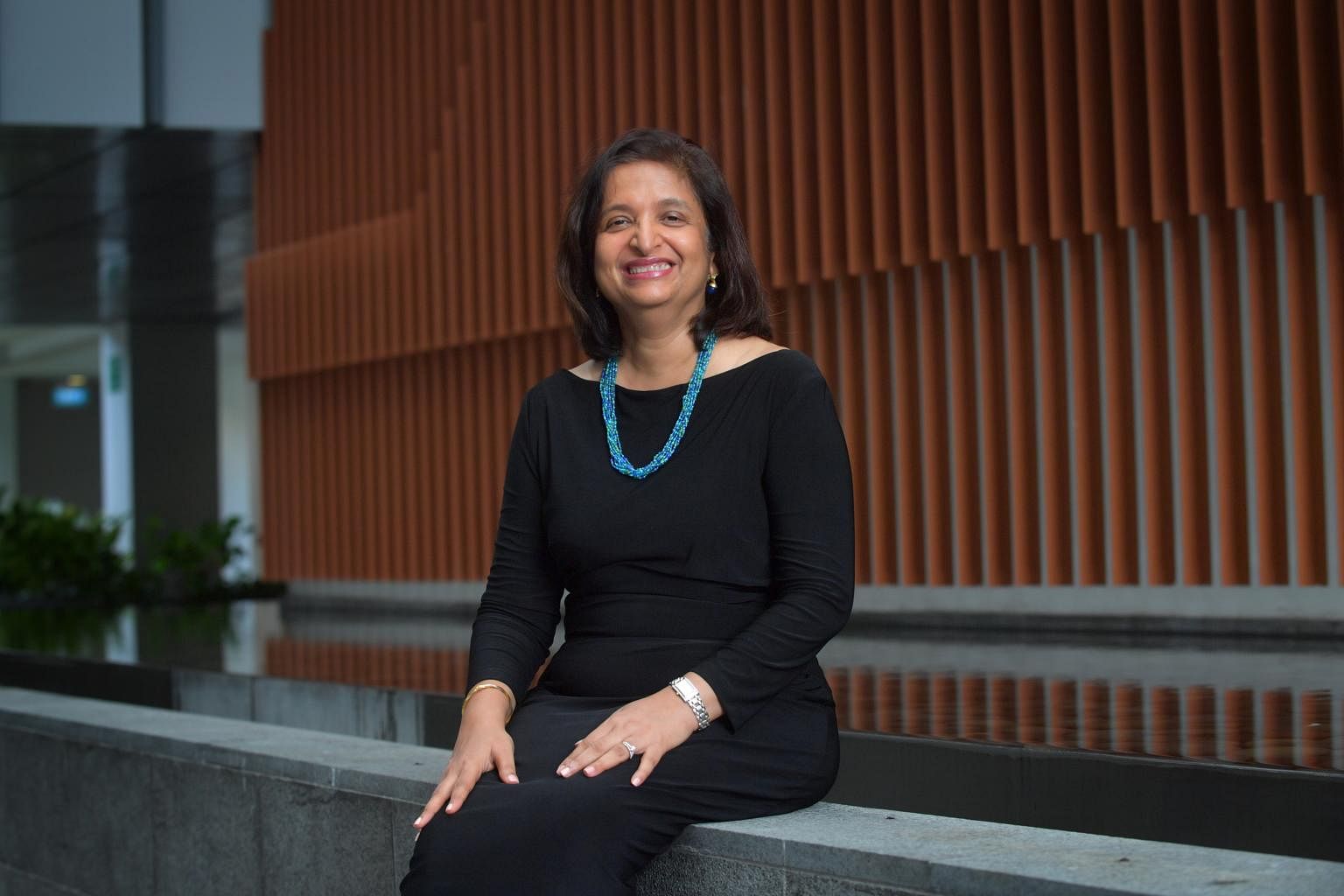More young people seeking help at mental health wellness service Chat
Sign up now: Get ST's newsletters delivered to your inbox

IMH's Community Health Assessment Team received 2,172 referrals in 2021, more than double the 908 referrals it got in 2016.
PHOTO ILLUSTRATION: SAMUEL ANG
SINGAPORE - More young people are seeking help through a free, confidential mental wellness service run by the Institute of Mental Health (IMH), which has seen referrals surge in the past five years.
Last year, the Community Health Assessment Team - better known as Chat - received 2,172 referrals, a majority of which were self-referrals.
This is more than double the 908 referrals it got in 2016. There were 51 referrals in 2009, when the programme was launched.
For many young people, Chat is where they receive a preliminary mental health check-up before being referred for further help if necessary. This can be done in person, over the phone or online.
While some are referred by their schools or through friends, the majority are people who approach Chat on their own.
Associate Professor Swapna Verma, who chairs IMH's medical board, attributes the programme's growth to a slight uptick in prevalence of mental health issues among the young, as well as improved awareness of the topic.
Chat also makes a conscious effort to make young people feel welcome and lower barriers to seeking help, she added.
For example, there is often a deep-seated stigma around mental health, Prof Swapna said. "They told me that coming to IMH was like having end-stage cancer. You only go when you're severely ill," she said.
Costs and confidentiality were two other concerns, as many young people did not want their parents to be involved, at least at the start.
Others believed it was normal to feel the way they did.
"In adolescence, your hormones are raging. You are going through so many transitional periods," Prof Swapna said. "So people feel it is OK to be 'emo', to have these ups and downs."
But at times, this emotional turbulence can also be a sign of an emerging mental illness, she added.
The Covid-19 pandemic shone a spotlight on mental health, especially among children and adolescents. Last month, a local study on the prevalence of mental health conditions among teens aged 11 to 18 found that one-third had experienced symptoms such as sadness, anxiety and loneliness.
One of those who sought help from Chat last year was 26-year-old John, who declined to reveal his real name. He was struggling with suicidal thoughts and overwhelmed by the plethora of counselling options available online.
"It can be quite intimidating to randomly pick one and hope that it works," he said.
After contacting Chat, he was initially referred to a counsellor. He was later further referred to IMH because his counsellor felt that he needed formal psychiatric help.
Throughout the process, Chat staff contacted him on a regular basis to see how he was doing.
"It made me feel reassured that someone was still following up on my case, instead of being chucked around like a soccer ball," said John, who works in the logistics industry.
He is now in therapy, and is also taking medication to manage his mood.
Prof Swapna said Chat has started to train staff from social service agencies to carry out youth mental health assessments, given the growing need nationwide.

In order to stay relevant to the young, it actively works to incorporate suggestions from young volunteers, she added.
These include 18-year-old Genevieve Lim, who volunteers as a programme ambassador and is working to shape Chat's upcoming podcast.
"I think Chat really does take into account everything we say, even if you just mention something small in a meeting," said the junior college year 2 student. "As an ambassador, it makes me feel that my perspective matters."
Added Prof Swapna: "You can't run a service for young people without getting the voices of the young."


